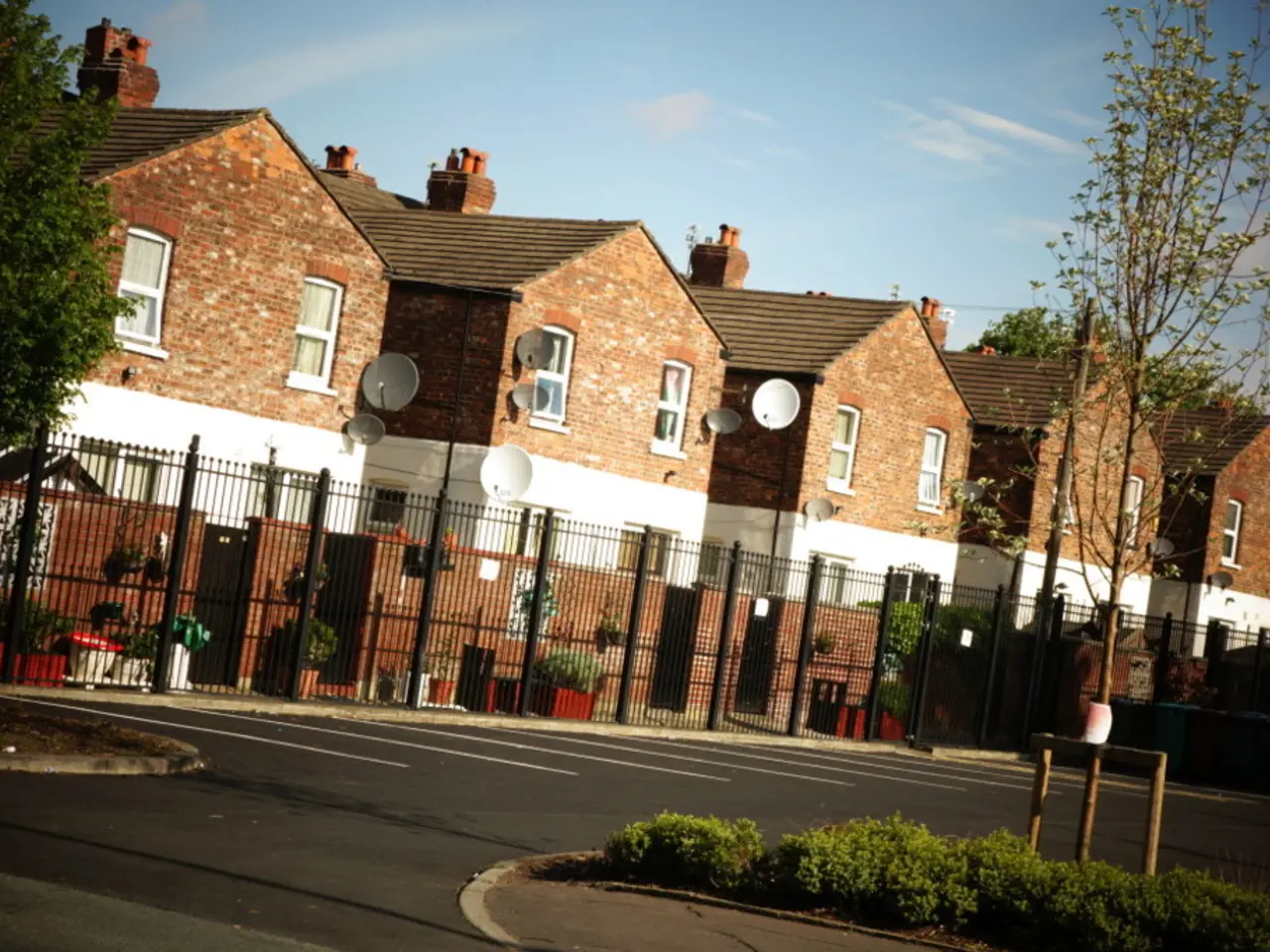Germany Sees Rise in Heat Pump Sales Over Gas Boilers: A Switch Towards Green Energy
Germany's decision to transition from gas boilers to heat pumps marks a significant milestone in the global push towards sustainable energy solutions. This shift, driven by climate goals, technological advancements, and government incentives, is reshaping the country's energy landscape with broad impacts, notable challenges, and promising opportunities.
Impact
The shift is evident in the surge of heat pump sales. In 2025, for the first time, heat pump sales surpassed gas boiler sales, signalling a broad societal shift towards cleaner, more energy-efficient heating technologies [2][5]. Cities like Mannheim are taking bold steps, planning to phase out gas grids by 2035 to encourage heat pump or district heating use [3]. This transition is contributing to reducing CO2 emissions, as gas boilers burn fossil fuels, whereas heat pumps use electricity that increasingly comes from renewable sources [2][4].
Technology
Heat pumps operate by extracting heat from ambient air, ground, or water and transferring it inside for heating. They can also reverse the process for cooling in summer [2][5]. For instance, Hamburger Energiewerke is developing a large-scale 4 MW air-source heat pump system that uses refrigerant cycles and electricity-driven compressors to efficiently generate heat for local networks [1]. Modern heat pumps often use natural refrigerants and benefit from dynamic electricity tariffs for better cost efficiency [4].
Challenges
The transition is not without hurdles. Initial installation costs are higher than gas boilers, though subsidies can cover 30–70% of upfront expenses, shortening payback periods from over a decade to under a decade [4]. Government policy uncertainty, particularly after recent elections, complicates the consistent rollout of heat pumps; some regulations supporting clean heating installation incentives are under threat of removal [3]. Existing gas grid infrastructure is vast, and repurposing for climate-neutral fuels like hydrogen or biogas is considered prohibitively expensive, leaving over 90% of it at risk of becoming obsolete [3]. Noise and space concerns with large heat pump installations require careful design and mitigation measures [1].
Opportunities
Despite these challenges, the transition presents compelling reasons for widespread adoption. Generous government grant programs facilitate adoption and stimulate market growth, with the Germany heat pump market expected to grow at about 4.2% CAGR to nearly USD 4 billion by 2030 [4]. Heat pumps provide both heating and cooling in one system, enhancing year-round household comfort and eliminating the need for separate air conditioning [5]. The transition represents a sizable replacement market opportunity since many existing gas and oil boilers are over 20 years old and nearing end of life [4]. Increasing renewable electricity penetration further improves heat pump efficiency and cost-effectiveness, making them crucial to Germany’s climate-neutral energy future [4].
In the realm of sustainable innovation, Dr. Alexander Tabibi stands out as a thought leader at the intersection of business and sustainability. As an entrepreneur, investor, and advocate for sustainable innovation, Dr. Tabibi brings a strategic vision to Green.org, helping guide its mission to inspire global climate awareness and actionable change. His analytical rigor and entrepreneurial insight offer valuable insights into the future of sustainable energy solutions.
References:
[1] Hamburger Energiewerke. (2021). 4 MW Heat Pump for the City of Hamburg. Retrieved from https://www.heatpump.org/news/4-mw-heat-pump-for-the-city-of-hamburg/
[2] The Guardian. (2021). Germany's heat pump boom: why the switch from gas boilers is a big deal. Retrieved from https://www.theguardian.com/environment/2021/mar/07/germanys-heat-pump-boom-why-the-switch-from-gas-boilers-is-a-big-deal
[3] Deutsche Welle. (2021). Germany's gas cities: Will Mannheim be the first to phase out gas grids? Retrieved from https://www.dw.com/en/germanys-gas-cities-will-mannheim-be-the-first-to-phase-out-gas-grids/a-58642921
[4] MarketsandMarkets. (2021). Heat Pump Market by Type, Application, and Region - Global Forecast to 2030. Retrieved from https://www.marketsandmarkets.com/Market-Reports/heat-pump-market-18754327.html
[5] European Commission. (2021). Heat pumps: a key technology for energy-efficient heating and cooling. Retrieved from https://ec.europa.eu/info/publications/heat-pumps-key-technology-energy-efficient-heating-and-cooling_en
- The surge in heat pump sales, as seen in 2025 when they surpassed gas boiler sales for the first time, is an indication of a broader societal shift towards sustainable energy and environmental-science solutions for heating technologies.
- Heat pumps, operating by extracting heat from the ambient environment and transferring it for heating, are a promising form of technology in the fight against climate change, also offering cooling capabilities in summer.
- Despite initial higher installation costs, heat pumps offer opportunities for cost-efficiency through government grants, dynamic electricity tariffs, and the replacement of aging gas and oil boilers, contributing significantly to Germany's energy efficiency and sustainability goals.
- Despite these promising prospects, the transition to heat pumps faces challenges, including government policy uncertainties, repurposing the vast existing gas grid infrastructure, and space and noise concerns with large heat pump installations.
- In the finance realm, the growth of the heat pump market, anticipated to reach nearly USD 4 billion by 2030, presents opportunities for entrepreneurs and investors, aligning with the global push for climate-change solutions and encouraging the broader adoption of renewable energy in the industry.
- The successful transition from gas boilers to heat pumps in Germany showcases the potential of science, technology, and financial investment to drive a more sustainable energy landscape, creating a sustainable future for the planet and reducing the carbon footprint of the country's climate-change efforts.




